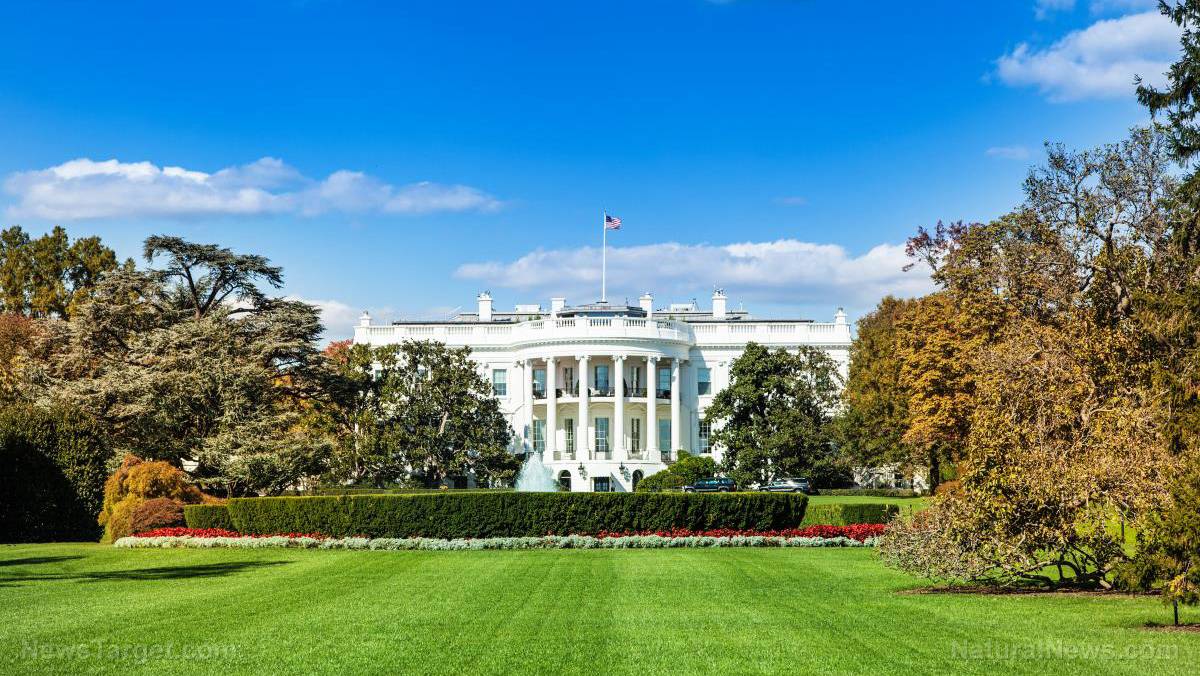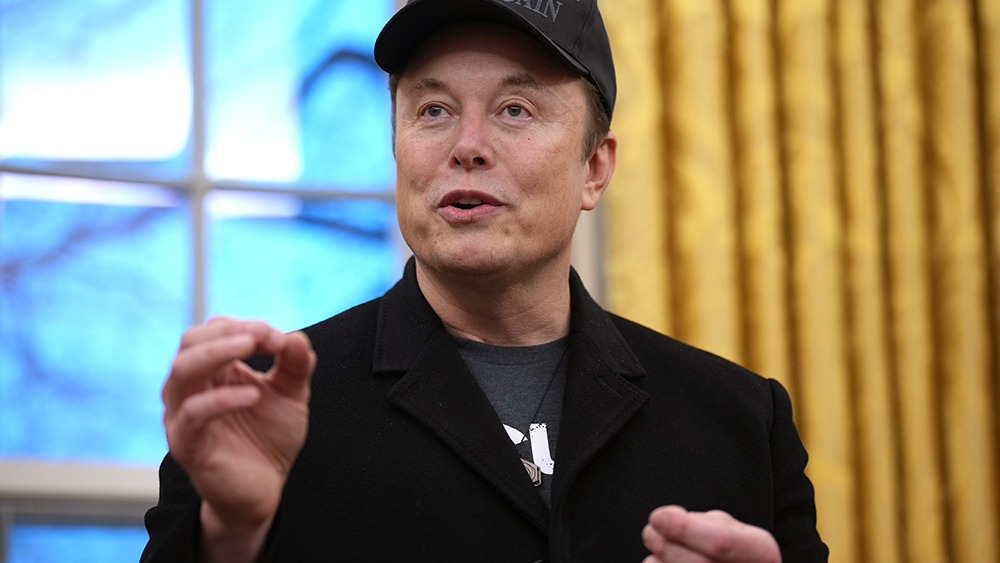China’s economic warfare and AI dominance: Experts warn U.S. risks falling behind in global power shift
04/22/2025 / By Finn Heartley

- China avoids direct military conflict, instead using economic infiltration, tech theft (e.g., Thousand Talents Plan), and cultural subversion to undermine U.S. dominance, per analysts Prather and Adams.
- The U.S. enabled China’s rise via offshoring and debt reliance; tariffs are circumvented through ASEAN nations. Loss of industrial capacity leaves America economically exposed.
- China leads in STEM graduates (5:1 ratio) and AI development, potentially achieving superintelligence first. U.S. tech firms allegedly hide advanced AI capabilities due to fear.
- While China’s carrier fleet lags, it excels in directed-energy weapons (e.g., naval lasers) and shipbuilding productivity, threatening key global waterways like the Strait of Malacca.
- China weaponizes culture (e.g., TikTok, fentanyl trafficking). Recovery requires U.S. energy independence, gold-backed currency, and industrial revival—or risk ceding the 21st century to Beijing.
In a gripping discussion between geopolitical analyst Jeffrey Prather and investigative journalist Mike Adams, a stark warning emerged: China’s strategic use of “unrestricted warfare” — economic infiltration, technological theft, and cultural subversion — is systematically eroding America’s global dominance. The conversation, rich with insights, painted a troubling picture of a U.S. at risk of losing the AI arms race, naval supremacy, and economic sovereignty unless drastic changes are made.
The “Unrestricted Warfare” Doctrine
Prather, a former Defense Intelligence Agency (DIA) and DEA operative, highlighted China’s calculated shift away from direct military confrontation after witnessing the U.S. decisively win the Gulf War. Instead, Beijing adopted a strategy outlined in the Unrestricted Warfare doctrine — a multi-pronged approach leveraging economics, espionage, and psychological operations.
“China realized they couldn’t defeat America head-on, so they infiltrated us through programs like the ‘Thousand Talents Plan,'” Prather explained, referencing Beijing’s initiative to recruit Western scientists and extract intellectual property. Adams added that China’s reverse-engineering prowess, combined with decades of U.S. corporate complicity (e.g., Boeing, Silicon Valley), has handed Beijing technological supremacy in 57 of 64 critical industries, from rare-earth minerals to telecommunications.
Economic Sabotage and the Debt Trap
Adams argued that the U.S. has unwittingly enabled China’s rise by offshoring manufacturing and flooding Beijing with Treasury debt — “trillions in IOUs that will soon be worthless.” While Trump’s tariffs were framed as a counterpunch, Adams called them a “facade,” noting that China circumvents trade barriers by rerouting goods through ASEAN nations like Vietnam and Taiwan. “You can’t embargo China when they control global supply chains,” he warned.
Prather countered that Trump’s policies at least disrupted China’s economic stranglehold, but both agreed: America’s addiction to cheap imports and loss of industrial capacity leaves it vulnerable. “We’ve forgotten how to make things,” Adams said. “China holds the gold; we hold the debt.”
The AI Arms Race and STEM Crisis
A chilling segment of the discussion focused on artificial intelligence. Adams, who works closely with AI developers, warned that China’s lead in STEM education (outpacing U.S. graduates 5:1) and its rejection of “woke academia” positions it to dominate AGI (Artificial General Intelligence). “China’s AI isn’t just a tool — it’s a weapon. If they achieve superintelligence first, it’s game over for the West,” he said.
Prather remained skeptical of AI’s existential threat, dismissing it as “fast, not intelligent,” but Adams cited alarming insider reports: U.S. tech firms are hiding “Skynet-level” AI capabilities out of fear. Meanwhile, China’s state-linked firms like DeepSeek (which stunned researchers with a $5M AI model) suggest massive, covert investment.
Naval Decline and Directed-Energy Weapons
The experts diverged on military readiness. Prather downplayed China’s carrier fleet as “inferior,” but Adams highlighted Beijing’s edge in directed-energy weapons. “Naval lasers are the game-changer, and China leads in cooling tech,” he said, predicting swarms of drone ships armed with precision lasers could neutralize U.S. carriers.
China’s naval expansion — backed by shipyards 100x more productive than America’s — threatens control of critical waterways like the Strait of Malacca and Panama Canal. “The U.S. can’t even secure the Red Sea from Houthi drones,” Adams noted.
Cultural Subversion and the TikTok Trojan Horse
Both agreed China weaponizes culture. “TikTok brainwashes American kids with degeneracy while teaching Chinese kids engineering,” Prather said. Adams tied fentanyl trafficking to China’s “opium war revenge,” flooding U.S. streets with synthetic opioids.
Can the U.S. Recover?
The conversation ended with cautious optimism. Prather believes China’s “debt pyramid” and internal unrest could mirror the USSR’s collapse, while Adams urged a return to gold-backed currency and energy independence (e.g., cold fusion). Both stressed self-reliance: “The dollar is dying. Learn skills, grow food, and prepare,” Adams said.
The Bottom Line: China’s patient, multi-generational strategy contrasts sharply with America’s short-term political cycles. Without urgent action to reclaim tech leadership, industrial capacity, and monetary stability, the 21st century may belong to Beijing.
Watch the full episode of the “Health Ranger Report” with Mike Adams, the Health Ranger, and Jeffrey Prather as they talk about China’s economic warfare and its future implications.
This video is from the Health Ranger Report channel on Brighteon.com.
More related stories:
Economic fallout and strategic stakes mount as U.S.-China trade tensions escalate
Tariff war erupts as U.S.-China trade conflict drives order cancellations and economic deterioration
Sources include:
Submit a correction >>
Tagged Under:
big government, Bubble, communist China, debt collapse, globalism, government debt, market crash, money supply, national security, pensions, rare minerals, risk, supply chain, tariffs, trade wars, Trump
This article may contain statements that reflect the opinion of the author
RECENT NEWS & ARTICLES
COPYRIGHT © 2017 PENSIONS.NEWS
All content posted on this site is protected under Free Speech. Pensions.news is not responsible for content written by contributing authors. The information on this site is provided for educational and entertainment purposes only. It is not intended as a substitute for professional advice of any kind. Pensions.news assumes no responsibility for the use or misuse of this material. All trademarks, registered trademarks and service marks mentioned on this site are the property of their respective owners.



















